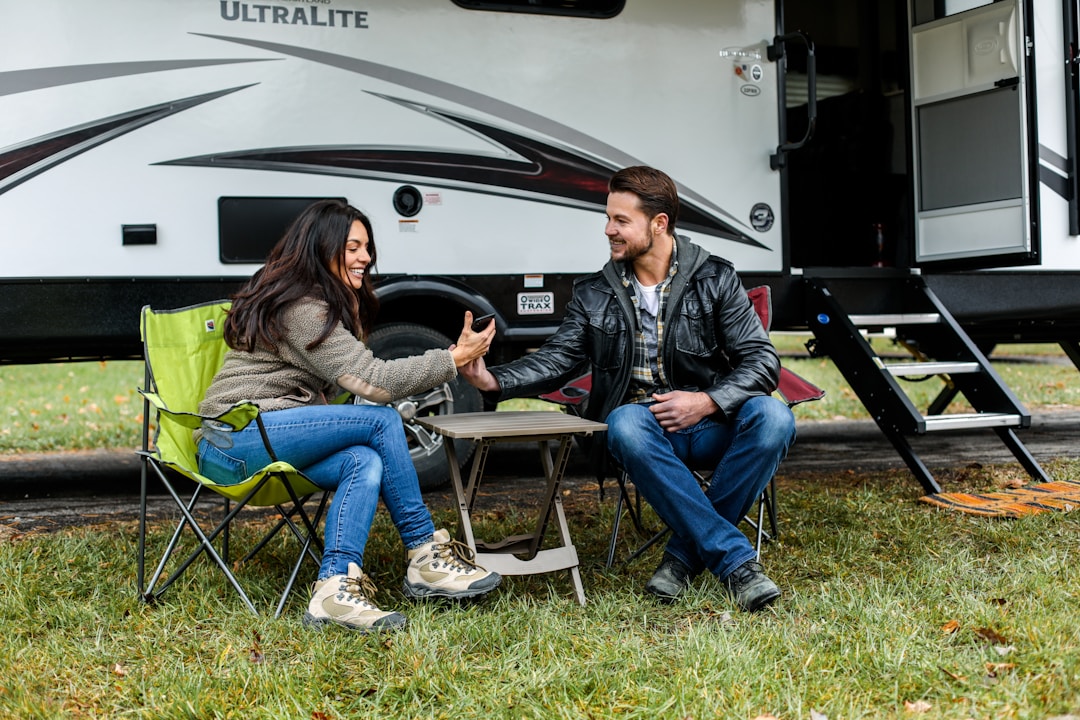Be it a short-term adventure or a permanent lifestyle change that you’re yearning for, living the van life can present a new world of freedoms and opportunities, as well as challenges. Converting a van into a home is not merely about having a mobile place to rest and sleep, it’s about creating a life of simplicity, minimalism, and adventure. In this informative article, you’ll be guided on the essentials of starting your journey on the road and how to live happily and comfortably in a van.
Choosing The Right Van for Your Lifestyle

When making the choice to live in a van, one of the most vital decisions to make is choosing the right vehicle that suits your needs and lifestyle. You want a van that offers not only comfort and functionality but also safety. The perfect van should provide enough space to live, sleep, and store your possessions, yet it must handle well on the road and fit in parking spaces. It should also be mechanically robust to avoid constant and expensive repair needs.
Moreover, when investing in a van, it is recommended that you consider getting an RV extended warranty. This will cover the cost of mechanical breakdowns, helping you to save money in the long run, and adding peace of mind as you embark on your adventure. While living life on the road can be a thrilling and liberating experience, the reality is that RVs are complex machines with various components that can break down or malfunction unexpectedly. As a full-time traveler, you don’t want to be caught off guard by hefty repair costs or find yourself stranded in the middle of nowhere. That’s where an RV extended warranty comes to your rescue.
If you’re going to travel in cold weather or through the winter, then you should winterize your van and if you’re planning on living on the road for an extended period of time, consider something more spacious, such as a cargo or sprinter van. These types of vans offer more headroom and space for home-like amenities. Think about factors such as fuel efficiency, parts availability, and vehicle age. The aim is to make life on the highway as enjoyable and trouble-free as possible.
Creating a Comfortable Living Space
Once you’ve chosen your van, the next big step is transforming it into a cozy and functional living space. This involves planning the layout of your cabin, deciding on the appliances and fixtures you need, and considering how to implement space-saving techniques. The interior design of your van should be both aesthetic and practical, creating a sense of home while you’re on the road. Think about what’s required for your daily living. Do you need a work zone? How about kitchen facilities? Bathroom facilities? In design, the goal is to balance comfort with utility, making effective use of the limited space.
In addition, insulation and ventilation are major factors in ensuring your comfort. Proper insulation will keep your van warm during chilly nights and cool during the heat of summer. On the other hand, a good ventilation system is important to keep the air fresh, control humidity, and prevent condensation inside your van. Maintaining healthy air quality should always be a priority since there are many negative effects of poor air quality.
Planning Your Route and Stay

Living the van life doesn’t mean aimlessly wandering. It is always wise to have a planned route for your journey, considering first your interests, then researching about the climate, cultures, and possibilities for parking and camping in the areas you plan to visit. Consider using mapping and weather apps to plan your route and time your travel accordingly. It will also be necessary to decide where you’ll be staying each night.
Some choose to stay in RV parks, while others prefer more natural surroundings. Research free overnight parking options, and always be sure you’re in a safe location. As you gain experience on the road, you’ll discover what kind of locations best suit your preferences and lifestyle. Always have an emergency plan in the event of unexpected incidents. You should always be able to call for assistance if needed and keep an emergency kit stocked with supplies in your van.
Managing Your Budget
Living in a van may be cheaper than living in a house, but you still need to manage your budget intelligently to stay afloat financially. This involves setting a realistic budget for all your costs, including gas, maintenance, insurance, food, internet, and entertainment. Remember to also set aside a contingency fund for unexpected expenses, such as vehicle breakdowns or medical emergencies. If you’re considering this lifestyle long-term, you’ll need to think about how to make a living while on the road.
Some van lifers work remotely, while others pick up odd jobs along the way. Whichever path you choose, ensure it aligns with your nomadic lifestyle. Living a minimalist lifestyle can reduce costs. The van life is about enjoying experiences rather than accumulating possessions. Prioritize spending on experiences that will enrich your journey and inspire you.
Staying Connected with the World

While the van life can offer a sense of freedom and adventure, staying connected with friends and family, not to mention employers or clients if you’re working while on the road, is key. Having a reliable means of communication is vital. Consider investing in a strong internet connection or different sources of connectivity for those times when signal strength may be weak. Don’t forget to consider digital safety. Using public networks can often expose your private information. Use a Virtual Private Network (VPN) to provide a layer of protection. This will encrypt your data, making it much harder for hackers to steal your personal information.
Beyond that, there’s the more personal aspect of remaining connected. Long periods on the road can sometimes lead to feelings of isolation. Regular calls with loved ones, using social media to connect with fellow van lifers, or even hosting visitors in your mobile home can help you feel connected and less isolated.
Respecting the Environment

Finally, a cardinal rule of van life is to respect the environment. As you travel, it’s your responsibility to leave no trace, ensuring that the natural environments you visit are preserved for future generations of travelers. Always dispose of your waste responsibly and be mindful not to disturb local wildlife or flora. Opt for reusable items where possible and recycle whenever you can. Additionally, try to minimize your carbon footprint. One way to do this is by driving less and staying longer at each destination.
You could also install solar panels on your van for a cleaner energy source. Ultimately, the goal is to enjoy nature whilst doing what you can to preserve it. Living the van life means adopting a minimalist, eco-friendly lifestyle. The lessons learned on the road often lead to a deeper appreciation for the earth and a stronger desire to care for it. Even small actions can have a big impact, so make sure you do your part.
As this blog illustrates, living the van life is an enriching experience filled with adventure, freedom, and sometimes, challenges. It encourages a simpler way of living that deepens your connection with nature, people, and self. While it may not be for everyone, those who choose this path often find it a rewarding, life-changing experience like no other. Follow our advice and you’ll be as prepared as possible for a journey in your van. So are you ready to hit the road?





